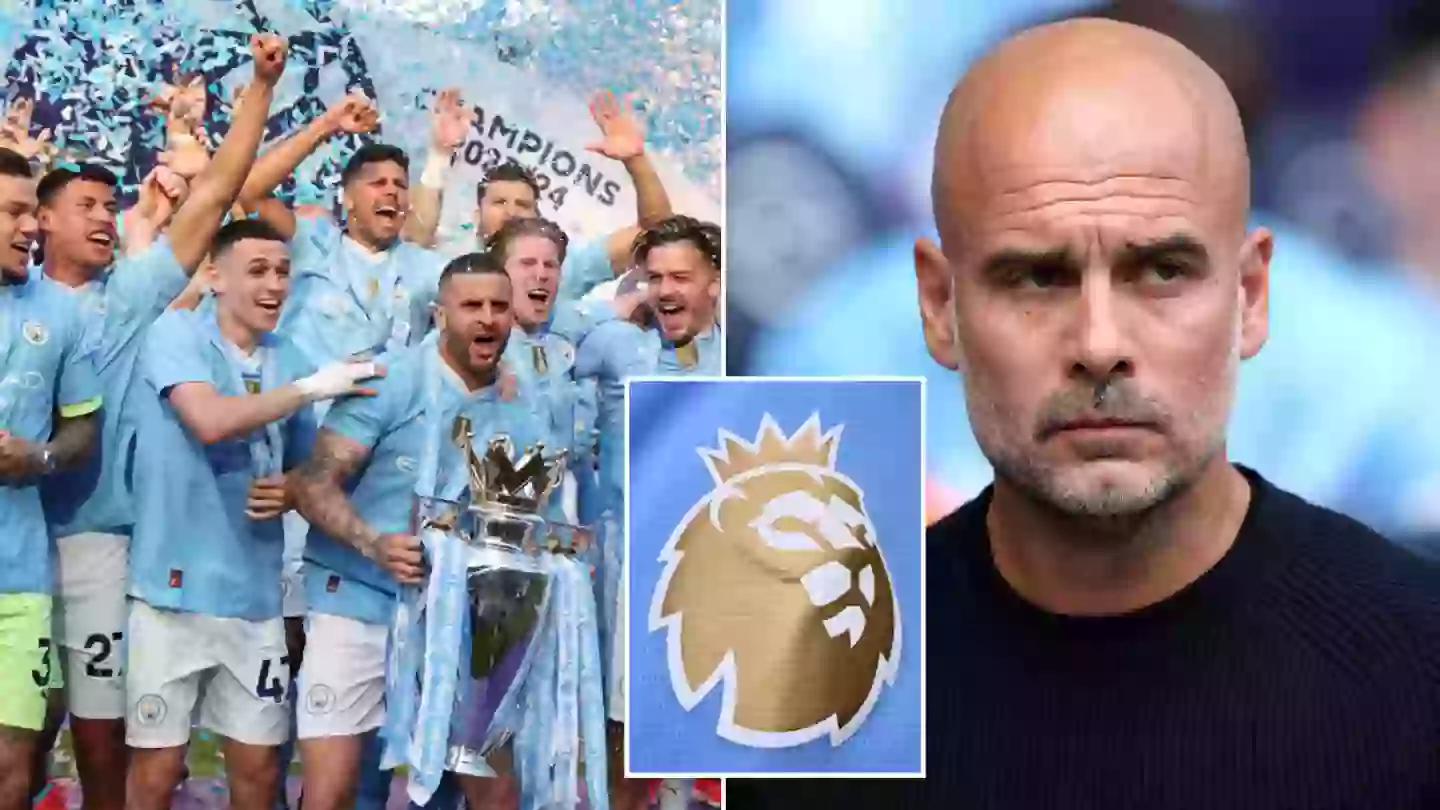Manchester City’s 115 Charges: A Prolonged Saga That’s Becoming Football’s Greatest Disgrace

The world of English football finds itself embroiled in one of the most significant regulatory controversies in the sport’s modern history. Manchester City, one of the Premier League’s most successful clubs of the past decade, continues to face 115 charges from the Premier League relating to alleged financial misconduct spanning nearly a decade. As the case drags on without resolution, prominent figures in football are growing increasingly frustrated with what many perceive as a failure of the system itself.
The Weight of Gary Neville’s Condemnation
Gary Neville, the former Manchester United captain turned pundit, has emerged as one of the most vocal critics of how the Manchester City charges have been handled. His recent comments on The Overlap Fan Debate have resonated throughout the football community, cutting through the typical diplomatic language that surrounds such sensitive matters.
“That Manchester City case is a disgrace; it’s an absolute stain to the game,” Neville declared with characteristic directness. His words carry particular weight given his status as both a Manchester United legend and someone who has maintained a generally respectful relationship with City despite the fierce rivalry between the clubs.
Neville’s frustration extends beyond the specifics of the charges themselves to encompass what he sees as a systemic failure in football governance. “I have a lot of admiration for City, but I don’t buy into this theory that clubs do really well, and City have, but it is still a stain to the game,” he continued, acknowledging the club’s achievements while refusing to let sporting success overshadow regulatory concerns.
The former England international’s most damning criticism focused on the prolonged nature of the proceedings: “It has just been dragging on for years and years, it’s an absolute joke. Yes, City have been defending themselves, but they’ve been pushing it so far into the long grass that you end up losing the will to live on it and you forget about it. It just needs to be dealt with.”
The Origins and Scope of the Charges
The 115 charges against Manchester City first came to light in February 2023, sending shockwaves through the football world. These allegations span a crucial period in the club’s modern history, covering incidents from 2009 through 2018 – precisely the years when City transformed from Premier League newcomers to dominant force under the ownership of Sheikh Mansour and the City Football Group.
The charges encompass a wide range of alleged financial irregularities, including accusations of overstating sponsorship revenue, understating manager and player costs, and failing to comply with UEFA’s Financial Fair Play regulations and the Premier League’s Profit and Sustainability Rules. The sheer number of charges – 115 – underscores the complexity and breadth of the investigation.
What makes these charges particularly significant is their timing. The period in question covers City’s initial rise to prominence, including their first Premier League title in 2012, and subsequent establishment as a perennial title contender. If proven, the allegations could cast a shadow over some of the most celebrated achievements in the club’s history.
Manchester City has consistently and vehemently denied all charges, with the club’s legal team mounting a robust defense. The club’s official position maintains that they have always operated within the rules and that the charges are without merit. This steadfast denial has set the stage for what has become one of the most high-stakes legal battles in sports history.
The Hearing Process and Continued Delays
The formal hearing process began in September of the previous year, marking what many hoped would be the beginning of the end for this prolonged saga. The proceedings, conducted by an independent panel, were expected to provide clarity on allegations that had been swirling around City for years.
However, despite the hearing concluding in December, the football world continues to wait for a verdict. The silence has been deafening, with even the most well-connected journalists unable to provide updates on when a decision might be forthcoming.
David Ornstein, one of the most respected football journalists in the country, was recently asked during a Q&A session for The Athletic about any new developments regarding the charges. His response was telling in its brevity: “Zero.” This single word encapsulated the frustration felt across the football community about the lack of progress or transparency in the case.
The delay becomes even more frustrating when considering that Pep Guardiola, City’s manager, had indicated in February that he expected a decision to be reached within a month. That prediction has proven to be overly optimistic, and the continued silence has only added to the speculation and uncertainty surrounding the case.
The Broader Impact on Football’s Integrity
The prolonged nature of the Manchester City case raises fundamental questions about the effectiveness of football governance and the ability of regulatory bodies to police the sport effectively. Neville’s characterization of the situation as “an absolute stain to the game” reflects a growing concern that the sport’s credibility is being undermined by the apparent inability to resolve such serious allegations in a timely manner.
The delay has practical implications beyond mere frustration. Other clubs, their fans, and stakeholders across the Premier League are operating in a climate of uncertainty. Transfer decisions, strategic planning, and even fan engagement are all potentially affected by the unresolved nature of these charges.
Moreover, the prolonged proceedings risk setting a precedent that could embolden other clubs to engage in questionable practices, knowing that even if charges are brought, the resolution process may take years. This could fundamentally alter the competitive landscape of English football and undermine the integrity of financial regulations designed to ensure fair competition.
Expert Analysis and Predictions
Football finance expert Kieran Maguire, who appeared alongside Neville on The Overlap Fan Debate, has provided valuable insight into the potential outcomes of the case. His expertise in football economics and regulatory matters offers a more nuanced perspective on what might emerge from the proceedings.
Maguire has previously suggested that the case is unlikely to result in a complete victory for either side. Instead, he predicts a mixed outcome where “the Premier League will win some of the 115 charges, but City will have a far stronger case in others.” This assessment reflects the complexity of the charges and the likelihood that different allegations will be viewed differently by the independent panel.
The expert has also noted that Manchester City has historically had “the upper hand over the Premier League” in legal disputes, pointing to previous successful challenges the club has mounted against regulatory decisions. This track record suggests that City’s legal strategy may prove effective in defending against at least some of the charges.
Nick DeMarco, another legal expert who has been following the case closely, shares Maguire’s view that the outcome will likely be a “score draw” rather than a decisive victory for either party. This prediction aligns with the complex nature of financial regulations in football and the difficulty in proving intent and systematic wrongdoing over such an extended period.
City’s Previous Legal Victories
Manchester City’s approach to regulatory challenges has been characterized by aggressive legal defense and a willingness to challenge the authorities at every turn. This strategy has already yielded significant results, most notably in their successful challenge to Associated Party Transaction (APT) rules.
Earlier this year, an independent panel determined that certain APT rules were “void and unenforceable,” representing a significant legal victory for City over the Premier League. This success demonstrates the club’s sophisticated legal approach and their ability to identify and exploit weaknesses in regulatory frameworks.
The APT victory has broader implications for the 115 charges case, as it demonstrates City’s legal team’s capability and suggests that they may have identified similar weaknesses in other areas of Premier League regulation. This precedent likely influences both the club’s confidence in their defense and the Premier League’s approach to the case.
The Human Cost of Uncertainty
Beyond the legal and regulatory implications, the prolonged uncertainty surrounding the charges has taken a human toll. Players, staff, and fans associated with Manchester City have had to endure years of speculation and innuendo about their club’s alleged wrongdoing.
Pep Guardiola, in particular, has faced repeated questions about the charges and their potential impact on his legacy and future at the club. The manager has consistently defended the club while expressing his desire for the matter to be resolved. His earlier prediction about a March resolution suggests even he underestimated the complexity and duration of the proceedings.
The uncertainty also affects player recruitment and retention, as potential signings and current squad members must consider the possibility of sanctions that could impact their careers. While City has continued to attract top talent, the cloud hanging over the club inevitably influences decision-making at every level.
A Season of Disappointment
The prolonged legal proceedings have unfolded against the backdrop of Manchester City’s most disappointing season in recent memory. For the first time since Guardiola’s arrival nearly a decade ago, City will conclude the season without any trophies – a stark contrast to their usual dominance.
The season’s nadir came with a 1-0 defeat to Crystal Palace in the FA Cup final at Wembley, a result that denied City their last remaining chance of silverware. The loss was particularly galling given City’s usual dominance in domestic competitions and their status as heavy favorites going into the match.
The team’s struggles on the pitch have inevitably been linked to the off-field uncertainty, though proving any direct connection would be difficult. What is clear is that the combination of legal proceedings and sporting disappointment has created a perfect storm of negativity around a club accustomed to success.
City’s final match of the season against Fulham represents more than just the end of a disappointing campaign. A victory would guarantee third place in the Premier League, ensuring Champions League qualification for next season – a crucial outcome given the ongoing uncertainty about potential future sanctions.
The Regulatory Framework Under Scrutiny
The Manchester City case has exposed potential weaknesses in football’s regulatory framework, particularly regarding the enforcement of Financial Fair Play rules and the Premier League’s Profit and Sustainability Rules. The lengthy proceedings raise questions about whether current systems are fit for purpose in an era of increasingly sophisticated club ownership structures and financial arrangements.
The complexity of modern football finance, with its intricate web of sponsorship deals, related party transactions, and multi-club ownership models, presents significant challenges for regulators. The City case highlights the difficulty in proving wrongdoing when dealing with such complex financial structures and the need for regulatory frameworks to evolve alongside the sport’s commercial development.
Looking Forward: The Need for Resolution
As the football world awaits a verdict in the Manchester City case, the pressure for resolution continues to mount. Gary Neville’s call for the matter to be “dealt with” reflects a broader sentiment across the sport that this prolonged uncertainty is damaging football’s credibility and integrity.
The eventual outcome, whatever it may be, will have far-reaching implications for English football. A finding of significant wrongdoing could result in points deductions, relegation, or other severe sanctions that would reshape the competitive landscape. Conversely, if City successfully defends against the majority of charges, it could embolden other clubs to push the boundaries of financial regulations.
What seems clear is that the current situation serves no one’s interests. Manchester City deserves either vindication or appropriate sanction, while the broader football community deserves clarity about the rules and their enforcement. The prolonged uncertainty has created a climate of suspicion and speculation that undermines the sport’s integrity regardless of the eventual verdict.
Conclusion: A Test of Football Governance
The Manchester City charges case has evolved from a specific regulatory matter into a broader test of football governance and the sport’s ability to police itself effectively. Gary Neville’s characterization of the situation as “a disgrace” and “an absolute stain to the game” captures the frustration felt across the football community about the failure to resolve these serious allegations in a timely manner.
The case highlights fundamental questions about transparency, accountability, and the effectiveness of current regulatory frameworks in professional football. Whether the eventual verdict vindicates Manchester City or upholds the Premier League’s charges, the prolonged nature of the proceedings has already inflicted damage on the sport’s reputation and credibility.
As the football world continues to wait for resolution, the Manchester City case serves as a stark reminder of the need for robust, transparent, and efficient regulatory processes in professional sport. Only through such systems can football maintain the integrity and fairness that lies at the heart of competitive sport, ensuring that success on the pitch reflects genuine sporting achievement rather than regulatory manipulation.
The eventual conclusion of this saga cannot come soon enough for the good of English football, Manchester City, and the sport as a whole. Until then, the charges remain what Gary Neville aptly described: an absolute disgrace that continues to stain the beautiful game.















